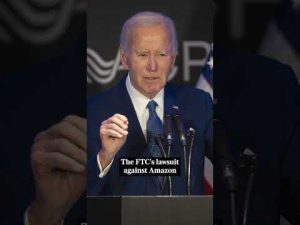YouTube quietly pulled the plug on ad revenue for two massive channels that specialized in fake, AI-assisted movie trailers, a move that follows months of viewer frustration and industry complaints. The action hit channels that routinely posted “what if” previews and polished fan edits, leaving creators who built audiences off algorithmic tricks suddenly unable to monetize their uploads.
Investigations by trade press revealed that the problem wasn’t just prank videos — some studios and middlemen were quietly lining their pockets while AI slop flooded the platform, turning honest film fandom into an automated ad farm. That revelation should alarm every American who cares about intellectual property, worker pay, and the integrity of creative markets, because it shows Hollywood’s elites will sell out authenticity for another dollar.
The two channels targeted — among the biggest in the fake-trailer space — amassed millions of views and huge subscriber counts by churning out daily concept trailers that mixed old footage with AI-generated faces and voices. YouTube’s decision to remove those channels from the Partner Program makes clear that the platform finally recognized the scale of the deception, even if it took a press probe to force the move.
YouTube justified the demonetization by pointing to misleading metadata and repeated content that didn’t materially change from one upload to the next, arguing that the videos violated its monetization policies. That’s a defensible enforcement choice in principle, but the public deserves transparent, consistent rules rather than ad-hoc crackdowns that look more like arbitrary power than principle.
People across the internet — from veteran fan creators to everyday users who got baited by fake trailers — cheered when the money faucet was turned off, calling it long overdue. Still, this episode exposes a deeper rot: Big Tech’s algorithms reward the lowest common denominator, and the only remedy so far has been a media circus that forces change instead of structural reform.
Conservatives should welcome a return to accountability in digital marketplaces while also demanding clearer rules and due process for creators, not partisan or opaque censorship. If we want a culture that prizes real craftsmanship and honest commerce, we must pressure platforms to protect consumers and creators alike, hold studios to account for profiteering, and empower users to choose authentic content over manufactured clickbait.







